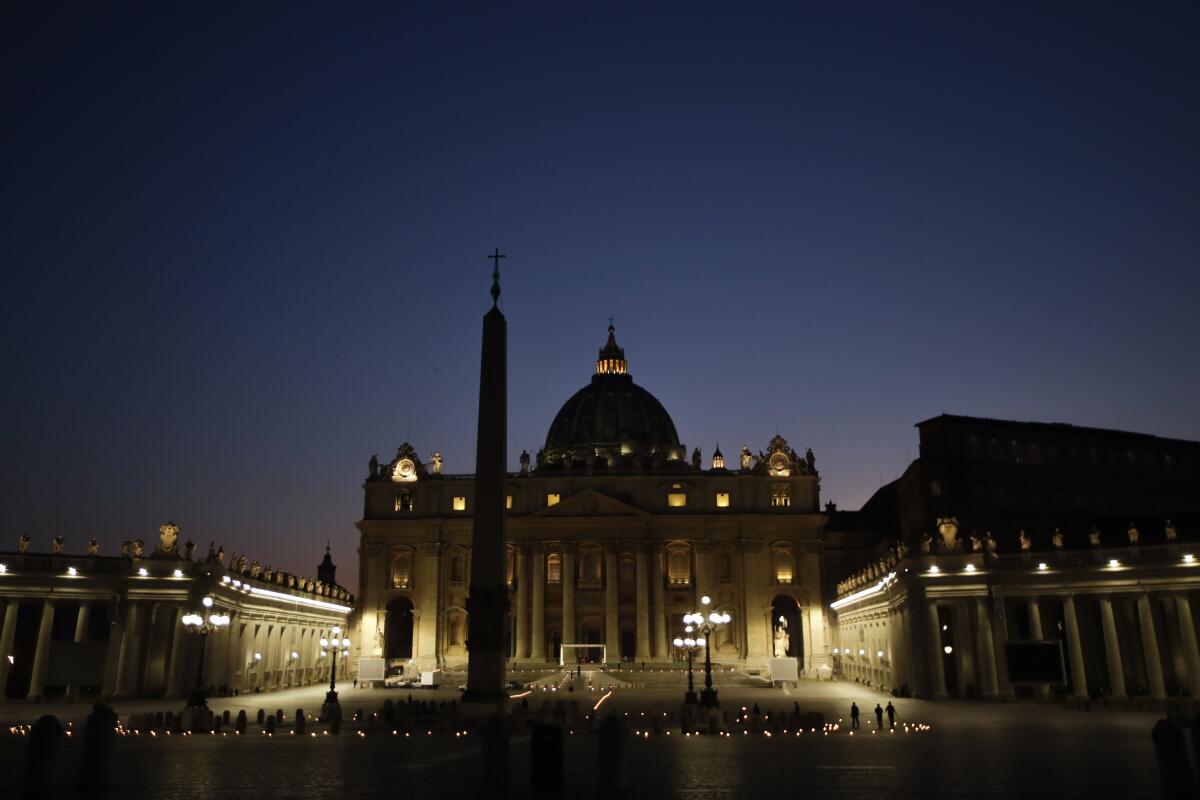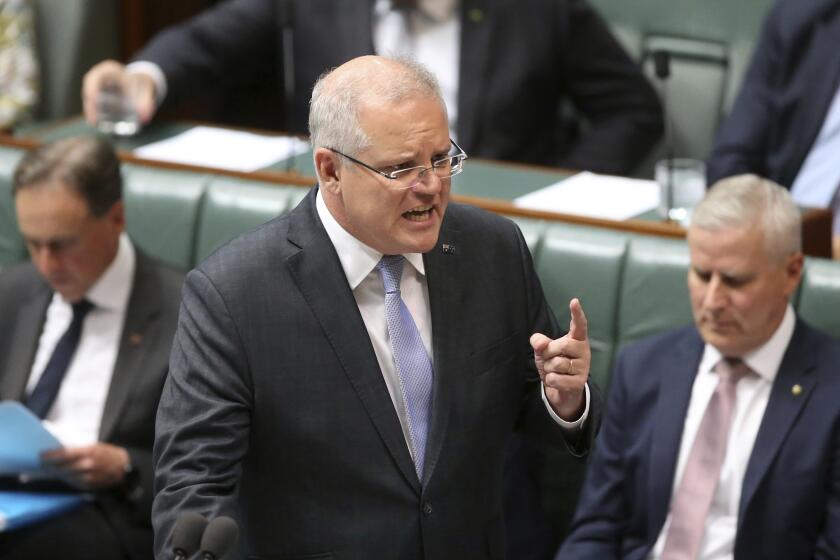Vatican allegedly hit by China-backed hackers ahead of key talks

- Share via
VATICAN CITY — The Vatican and the Catholic Diocese of Hong Kong have been the targets of alleged Chinese state-backed hackers ahead of talks on the renewal of a landmark 2018 deal that helped thaw diplomatic relations between Beijing and the Holy See, according to a monitoring group.
The alleged attacks by a group called RedDelta began in May with an eye on talks in September to renew a provisional agreement on bishop appointments, according to a report Tuesday by the U.S.-based Recorded Future, which tracks state-backed cyber-attacks. The attacks were first reported by the New York Times.
The Vatican had no immediate comment. The Chinese foreign ministry denied any involvement, calling the report “groundless speculation.”
Recorded Future said that the Hong Kong Study Mission to China — a key link between the Vatican and China — and the Pontifical Institute for Foreign Missions also were targeted.
“The suspected intrusion into the Vatican would offer RedDelta insight into the negotiating position of the Holy See ahead of the deal’s September 2020 renewal,” the report said. It also could provide “valuable intelligence” about Hong Kong-based Catholic entities’ position on the pro-democracy movement in the former British colony.
The attacks continued at least through July 21. They included an apparent phishing attempt with a document on Vatican Secretariat of State letterhead directed to the head of the Hong Kong Study Mission to China.
The Australian prime minister says Australia is under an increasing cyberattack from a ‘sophisticated state-based cyber actor’ believed to be China.
China’s estimated 12 million Catholics are split between those belonging to the government-approved Chinese Catholic Patriotic Assn., which is outside the pope’s authority, and an underground church loyal to the pope. Underground priests and parishioners are frequently detained and harassed.
A landmark 2018 deal between the Holy See and China on bishop nominations was aimed at uniting the flock, regularizing the status of seven bishops who were not recognized by Rome and thawing decades of estrangement between China and the Vatican.
But some of China’s underground faithful have deep reservations about the deal, seeing it as a sellout to the Communist government and a betrayal of their long loyalty to the pope.
China routinely denies engaging in a state-sponsored program to steal commercial secrets or sensitive government information over the internet, and says it is among the biggest victims of hacking attacks. The U.S. disputes that and says it has traced cyber-intrusions to the Chinese military.
Researchers found 28,000 web pages set up to steal passwords from elected officials, lawyers and journalists.
Earlier this month, Washington indicted two Chinese citizens for allegedly launching hacking attacks against companies in the U.S. and other countries.
The Justice Department also said hackers working with the Chinese government targeted firms developing vaccines for the coronavirus. China says Washington has provided no information to back up the charges.
More to Read
Sign up for Essential California
The most important California stories and recommendations in your inbox every morning.
You may occasionally receive promotional content from the Los Angeles Times.











